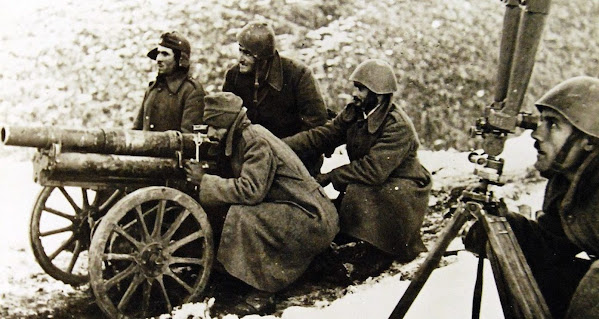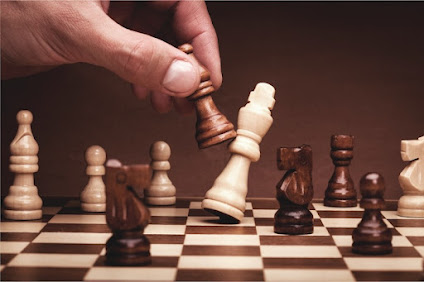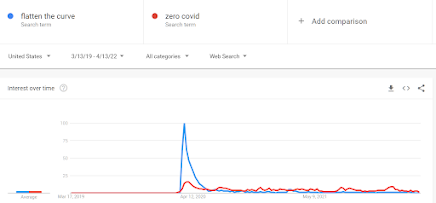Italian members of the secret society of the "Carbonari" of the 19th century. They may be planning a revolution or maybe a pizza party. Is this our future?
Many ideas are floating in the memesphere on how to survive the current situation. Some people think of moving to a country ruled by less dangerous governments, others of retreating to an agricultural village in some remote area, and others about the possibility of going undercover. That is, disappearing from the sight of the government, waiting for better times that might come in the future. And even acting to bring those times closer.
Is it possible? Could you really hide in a world that's becoming more and more like the fabled "panopticon," a prison where the jailers have a full view of everything that the prisoners do? Difficult, surely, but it is also true that we still maintain a certain degree of freedom inside our brains, provided that we don't expose them to government propaganda. So, could people who think alike in certain matters get together and form a secret network?
As you can imagine, it is not an easy task, and it may also be dangerous. When we think of a secret organization, we think of something like the famed Al-Qaeda society. They managed to carry out one of the most successful terrorist attacks in history and, remarkably, they did so while leaving no traces anywhere, except for a videocassette tape showing a bearded sheik in a cave accusing himself of having been the perpetrator.
The problem with discussing secret societies is that, obviously, they are secret. That means we know something only of the ones which were not so successful at keeping their secrecy. In any case, it seems that secret societies are typically based on a pyramidal cell structure, where each member knows only the members of his/her cell (typically no more than three). The reason for this structure is the need to minimize the effect of treason: any member can defeat and betray the others, but the smaller the number of members he/she knows, the smaller will be the damage. You can find a good description of how cell-based secret societies are supposed to work in terms of keeping secrecy in the novel by Robert A. Heinlein, "The Moon is a Harsh Mistress" (1966) (*). Similar descriptions exist all over the Web.
A cell-based structure is well-known, but it is not very practical. One problem is that it grows very slowly. If you want to have at least a few thousand people in the pyramid, probably the minimum needed to start a serious revolution, with cells of three people, you need at least 6-7 layers. That makes no sense: an order coming from the top must go through each step before it arrives at the base layer, where it can be finally carried out. If a structure like this one were ever to work for real, cells would have to be much larger.
Even so, a cell structure is not a good idea in terms of generating a revolution. Nobody would want to join an organization so secretive that they would never be able to know who is at the top. People need leaders to act, and they need to know who their leaders are. But being a member of a small revolutionary cell freezes you in a closed world where you can only follow orders coming from above, together with just a few like-minded companions. Why should you do that? For some lofty ideal? Maybe, but how do you know that your leaders are actually working for those ideals? How do you know that the organization has not been infiltrated by your enemies? Or by aliens from Betelgeuse?
In practice, cell-based secret organizations can work only as military covert operations, as you may discover if you take up a career as a spy. But, typically, people who take up spying do that for money which, indeed, is what keeps together the organization. The carrot is normally coupled with a massive stick: if you betray, you risk your life: either you will be hanged as a spy, or shot as a traitor by other members of the organization. I don't know how much spies are paid, but I think it is not a condition anyone would want to find themselves in.
Can we think of more effective ideas? Yes, but we have to accept that the organization cannot be 100% secret, and neither it should be. Early Christianity is a good example of a semi-secret organization that was created in opposition to an oppressive government. A common legend has that the early Christians would hide in subterranean refuges called "catacombs." But these were never secret places (hiding in caves seems to be only a habit of bearded sheiks in Afghanistan). The historical catacombs were just cemeteries. But it is true that many Christians kept a low profile in a society that sanctioned their beliefs with death. Later, the Muslims practiced the Taqiya, a precautionary dissimulation in the face of persecution.
Both Christianity and Islam were successful, although only in the long run, and not without a harsh struggle. So, it is possible to fight oppression by a religion. You could even think of creating a new one, it is probably possible in the US. For those of us who think that the task is a little too steep, though, we may need a different approach. Can we think of non-religious groups that could successfully oppose state oppression? There are some examples in history, one is that of the Carbonari, who were most active in the 1800s, in Italy and in other European countries.
The story of the Carbonari is as fascinating as it is scarcely known. They started around 1800 as liberals who hated all forms of oppression. They were anti-clerical, wanted to destroy the Catholic Church, and aimed at a revolution to get rid of the many petty monarchies that ruled the Italian peninsula. They were not necessarily favorable to a united Italy, although it must have been clear to them that it was an unavoidable consequence of the elimination of the local tyrants.Grand Master - What do you ask, Pagan?
He answers: the light.
Gr. M. - This will be granted to you at the third blow of my hatchet.
The Assistants turn their hatchets against him. The Master of Ceremonies takes off his blidfold.
Gr. M. - These hatchets, which you see in our hands, will be used to kill you in case of perjury on your part. On the contrary, they will fly to your aid if you need them,
The Master of Ceremonies leads him to the Throne.
You must pronounce again and ratify a part of the Oath you swore blindfolded. Repeat with me: I swear and promise to recognize and observe the General Statutes and Regulations of the Carbonic Order and of the High Sale of Naples and those no less of this Respectable Sale of which I am a Member.
That said, the Baptism of the Initiate happens, which is done as follows:
The Grand Master touches his eyes, ears, nostrils and lips with a linen cloth slightly wet in water, saying afterwards:
- You shall not see except by our eyes.
- You will not hear except by our ears.
- You shall smell the effluvia of our coal.
- You will speak only wise words.
Having said this the Grand Master continues:- To the glory of the Grand Master of the Universe, in the name of Saint Theobald and under the auspices of the High Sale of Naples, by the powers confided to me, I constitute you an Apprentice Carbonaro and a Member of this Respectable Sale.
(He rises and gives him the decorations).
_____________________________________________________________
(*) From "The Moon is a Harsh Mistress" - By Robert A. Heinlein (1966)
Dialog of the three of the protagonists, professor Bernardo de La Paz (Prof.), Wyoming Knott ("Wyo") and Manuel Garcia O'Kelly-Davis (Mannie) (speaking voice)
Prof: "..... revolutions are not won by enlisting the masses. Revolution is a science only a few are competent to practice. It depends on correct organization and, above all, on communications. Then, at the proper moment in history, they alight. Correctly organized and properly timed it is a bloodless coup. Done clumsily or prematurely and the result is civil war, mob violence, purges, terror. I hope you will forgive me if I say that, up to now, it has been done clumsily."
Wyo looked baffled. "What do you mean by 'correct organization'?"
"Functional organization. How does one design an electric motor? Would you attach a bathtub to it, simply because one was available? Would a bouquet of flowers help? A heap of rocks? No, you would use just those elements necessary to its purpose and make it no larger than needed—and you would incorporate safety factors. Function controls design. "So it is with revolution. Organ must be no larger than necessary—never recruit anyone merely because he wants to join. Nor seek to persuade for the pleasure of having another share your views. He'll share them when the times comes. . . or you've misjudged the moment in history. Oh, there will be an educational organization, but it must be separate; agitprop is no part of basic structure.
"As to basic structure, a revolution starts as a conspiracy therefore structure is small, secret, and organized as to minimize damage by betrayal—since there always are betrayals. One solution is the cell system and so far nothing better has been invented.
"Much theorizing has gone into optimum cell size. I think that history shows that a cell of three is best—more than three can't agree on when to have dinner, much less when to strike.
"Here is a cells-of-three tree. If I were planning to take over Luna. I would start with an three. One would be opted as chairman. We wouldn't vote; choice would be obvious—or we aren't the right three. We would know the next nine people, three cells. . . but each would know only one of us."
"Looks like computer diagram—a ternary logic."
"Does it really? At the next level there are two ways of linking: This comrade, second level, knows his cell leader, his two cellmates, and on the third level he knows the three in his subcell—he may or may not know his cellmates' subcells. One method doubles security, the other doubles speed—of repair if security is penetrated Let's say he does not know his cellmates' subcells—Manuel, how many can he betray? Don't say he won't; today they can brainwash any person, and starch and iron and use him. How many?"
"Six," I answered "His boss, two cellmates, three in sub-cell."
"Seven," Prof corrected, "he betrays himself, too. Which leaves seven broken links on three levels to repair. How?"
"I don't see how it can be," objected Wyoh. "You've got them no split up it falls to pieces."
"Manuel? An exercise for the student" "
"Well ... blokes down here have to have way to send message up three levels. Don't have to know who, just have to know where."
"Precisely!"


















